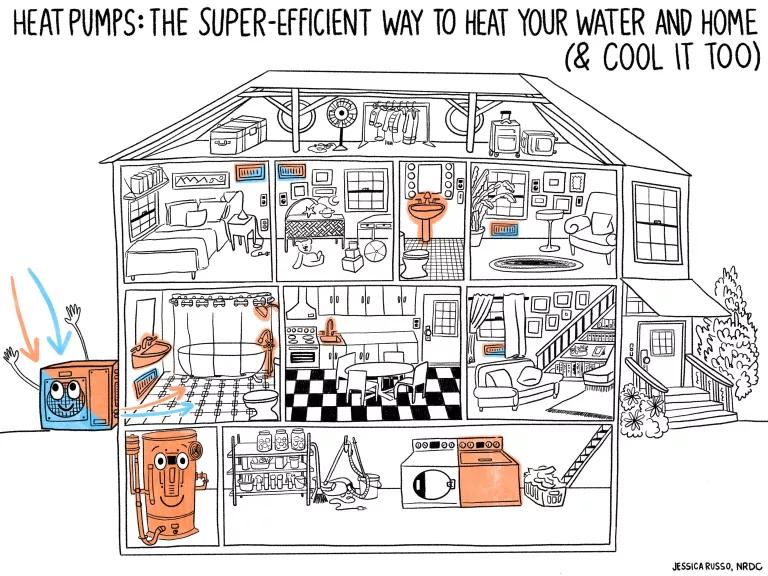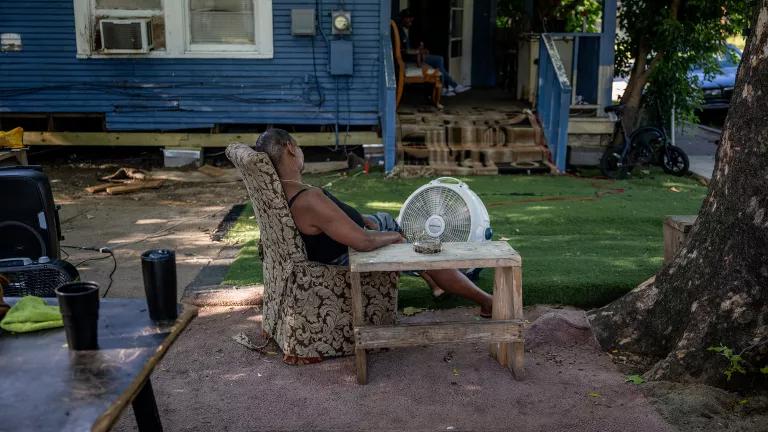
The California Public Utilities Commission just approved two new pilot programs to make the state’s homes more climate-friendly and affordable to heat. The $200 million in funding will boost the market for efficient electric space and water heating equipment for buildings, and provide incentives to all-electric new housing, with a focus on low-income households.
Today’s decision is part of a regulatory proceeding to “decarbonize” buildings, launched to design the programs funded by SB 1477, that will help mitigate the climate crisis that is already hitting California such as with out-of-control wildfires. Cleaning up the building sector is critical to these goals.
The commission’s decision creates two new programs: Technology and Equipment for Clean Heating (TECH) and Building Initiative for Low Emissions Development (BUILD). Each is designed to test a different approach to cutting carbon emissions in buildings from fossil fuel combustion for water heating, space heating, and cooking. TECH will receive $120 million and BUILD will receive $80 million over 4 years from the state's cap and trade program.
Clean heating technologies get a boost
TECH aims to jump start the market for low-emissions space and water heating technologies by working “upstream” with manufacturers, distributors, and vendors; and through consumer education and contractor training. Switching to highly efficient electric heat pumps, for example, is imperative to meeting the state's climate goals, as about 90 percent of California's furnaces and water heaters currently run on gas or propane. TECH will be run by a statewide third-party implementer, to be selected through a competitive process.

Funding for all-electric new buildings focuses on low-income housing
BUILD is dedicated to new all-electric housing that has lower emissions than buildings fueled with fossil gas (a.k.a. natural gas). The program can incentivize any combination of measures, including heat pumps, energy efficiency, demand response (compensating customers for moving their energy use to a different time when emissions are lower), storage, or solar beyond what is required by code. BUILD will be primarily focused on housing for low-income families, with a minimum of 75 percent of these funds set aside for low-income projects and active technical assistance provided to low-income housing developers. The California Energy Commission will administer BUILD, which leverages the commission’s expertise in overseeing the energy code for new buildings.
Smart regulation: An emphasis on learning and flexibility
The California Public Utilities Commission decision strikes a smart balance between clear guidance and allowing these programs flexibility to learn over time. The programs will be required to report detailed impacts in terms of emissions reductions and costs savings, and where possible, utility bill data will be analyzed by a third-party evaluator that both programs will use to determine if the programs are meeting their goals.
The commission is also giving the programs freedom to design the specific incentives and market interventions they deploy, and to adjust strategies over time with ongoing feedback from the evaluator. As stated in the decision, these “pilot programs are designed to develop valuable market experience for the purpose of decarbonizing California’s residential buildings.” This decision provides the right structure to successfully launch these important programs that hopefully will become even more widespread in the future.




